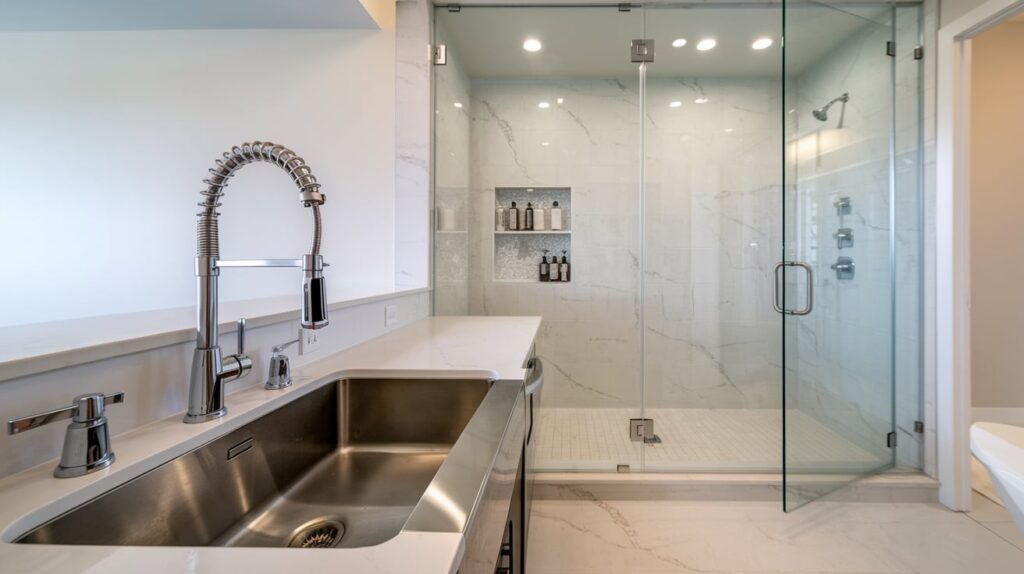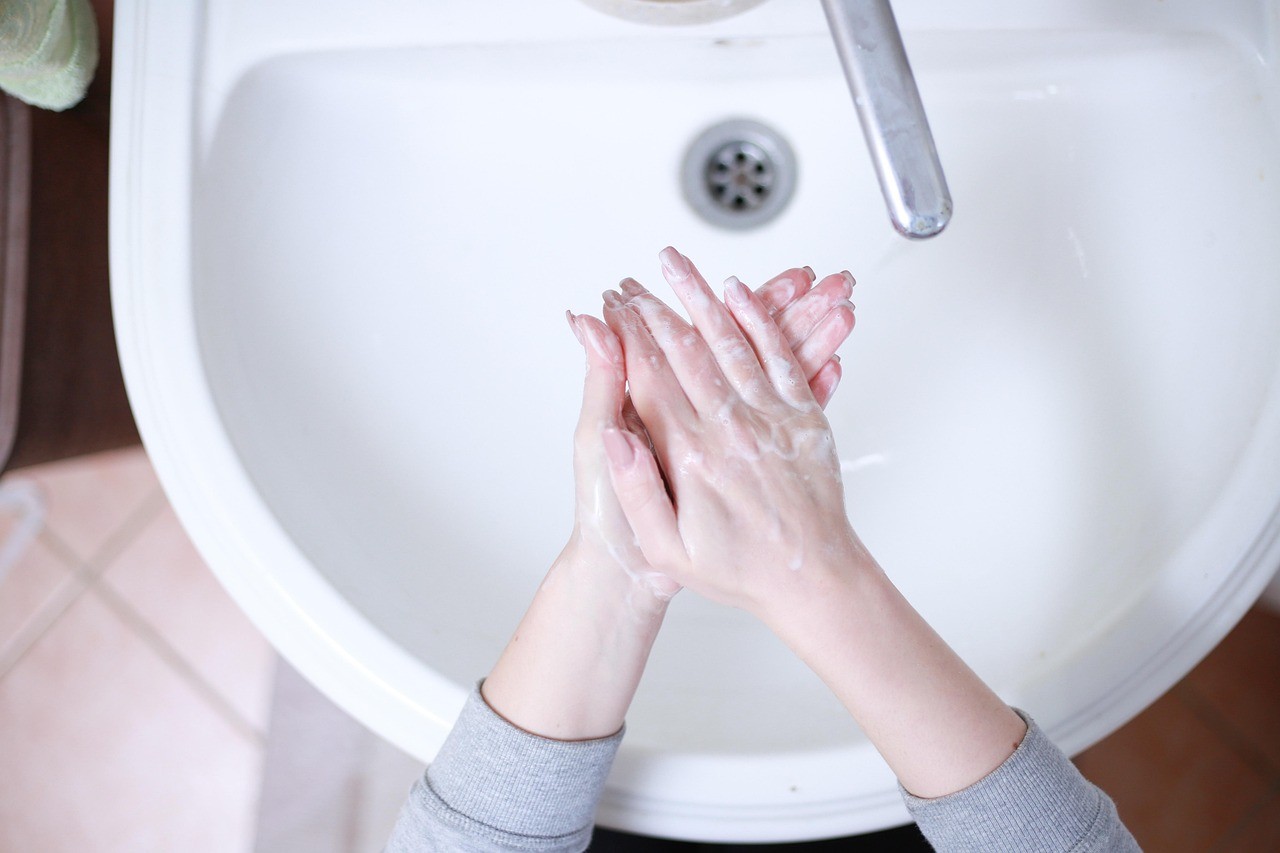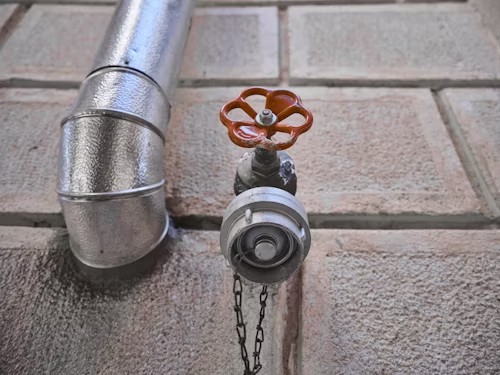Hard water is a common issue that many households face, causing various problems in daily life. From mineral buildup to skin irritations, the effects of hard water can be costly and troublesome for homeowners.
Understanding hard water and its consequences is the initial step toward effectively addressing these challenges. In the following sections, we will explore practical solutions to combat hard water issues, helping you restore balance and comfort to your home.
Understanding Hard Water
Hard water contains high levels of minerals, primarily calcium and magnesium. These minerals are prevalent in many water sources, particularly in regions with limestone rock formations. When water flows through these geological formations, it absorbs minerals, resulting in water with elevated hardness levels. Hard water can create various issues for homeowners. One significant concern is the accumulation of scale buildup in plumbing systems, which can lead to costly repairs.
Another common issue caused by hard water is its impact on household appliances. Dishwashers and water heaters can experience decreased efficiency due to accumulated limescale, ultimately affecting their lifespan. Even more worrisome is the skin and hair damage that hard water can cause, resulting in dryness and irritation for individuals in affected households. Understanding the core causes and effects of hard water is important in determining the best steps to mitigate its impact.
Water Softening Techniques
When it comes to tackling hard water, water softening techniques are among the most effective methods. These techniques aim to reduce the mineral content in your water, making it softer and less harsh on appliances and skin. The conventional method involves the use of ion exchange systems, commonly found in water softeners.
These systems effectively replace calcium and magnesium ions with sodium or potassium ions, helping to significantly mitigate the adverse effects of hard water. Modern hard water solutions for home improvement range from water softeners to Simple DIY options, effectively utilizing materials like vinegar or baking soda to temporarily soften water. Adding vinegar to laundry can help prevent mineral buildup on clothes, while a baking soda rinse can help soften water in showers.
Many households increasingly take into account these solutions as they are often less expensive than purchasing and installing a full water softening system. Another alternative is the use of reverse osmosis systems, which remove various contaminants, including minerals, from the water supply. This method is typically more comprehensive but requires a larger investment and adequate space to set up. The choice of which technique to implement depends on individual household needs and budget.
Maintenance of Plumbing Systems
Regular maintenance of plumbing systems is important in combating hard water challenges. Homeowners should schedule routine inspections to identify mineral deposits that might impede water flow. Clear signs of scale buildup include decreased water pressure or frequent clogs in pipes and faucets. Regularly addressing these issues can save homeowners significant repair costs in the long run. Implementation of preventative measures, such as installing water filters or softening systems, can significantly reduce the accumulation of minerals.
Descaling agents designed to dissolve limescale and mineral buildup can be regularly applied to maintain clean plumbing systems. These agents often utilize citric acid or other natural compounds to break down limescale without causing harm to pipes. To promote long-term effectiveness, it’s important to opt for high-quality plumbing fixtures made from corrosion-resistant materials. This choice will minimize corrosion caused by hard water exposure and prolong the life of your plumbing system.
Periodically flushing water heaters can prevent sediment accumulation, which often contributes to hard water problems. Regularly checking faucets, showerheads, and appliances for mineral deposits ensures that water flow remains consistent. Using strainers or aerators on faucets can trap particles and reduce scaling in the long term. Scheduling professional inspections at least once a year can help identify hidden issues before they escalate. Maintaining a consistent routine of cleaning and preventative measures will enhance both the efficiency and longevity of your plumbing system.
Impact on Household Appliances
Hard water can significantly impact the performance and longevity of household appliances. Dishwashers, washing machines, and water heaters are particularly vulnerable, as hard water causes limescale buildup within these devices. As the mineral deposits accumulate, they can lead to decreased operational efficiency and, eventually, appliance failure. To counter these issues, regular maintenance is key. Homeowners should take care to clean appliances frequently.
Running a dedicated cleaning cycle with vinegar or a commercial scale remover in your dishwasher or washing machine can help keep mineral buildup at bay. In water heaters, flushing the tank periodically to remove scale can significantly improve heating efficiency. Investing in high-efficiency appliances designed to resist hard water effects can be beneficial. These appliances often come equipped with features to reduce mineral buildup, leading to a more sustainable and cost-efficient operation.
Hard water can cause spotting and streaking on dishes and glassware, reducing their aesthetic appeal. Washing machine performance may decline, with clothing appearing dingy or stiff due to mineral residue. Appliances may consume more energy as limescale interferes with heating elements, increasing utility bills. Installing a water softener or filtration system can alleviate these problems and protect your appliances. Keeping an eye on warranty guidelines is important, as some manufacturers may require specific maintenance practices to maintain coverage when hard water is present.
Choosing the Right Water Filter
Selecting the appropriate water filter is another vital step in managing hard water issues. Various water filtration options are available, each designed to address specific needs and preferences. Reverse osmosis systems offer thorough filtration, effectively eliminating sediment and minerals from the water supply. However, these systems usually have a higher upfront cost and may require a more complex installation process.
Activated carbon filters can improve the taste and odor of hard water. While these filters do not fully remove minerals, they can still enhance water quality. Depending on individual preferences and budget, many homeowners often opt for a combination of filters for comprehensive results. Understanding the specific contaminants present in your water can assist in making the best choice. Conducting a water quality test can reveal the mineral content and help you select the most effective filtration system.
Addressing hard water challenges in the home involves understanding its causes, implementing softening techniques, and maintaining plumbing systems. Effectively managing the impact on household appliances and carefully selecting water filtration systems can lead to a more comfortable living environment. By following these steps, homeowners can enjoy the benefits of cleaner, softer water, improving both household efficiency and personal well-being.



